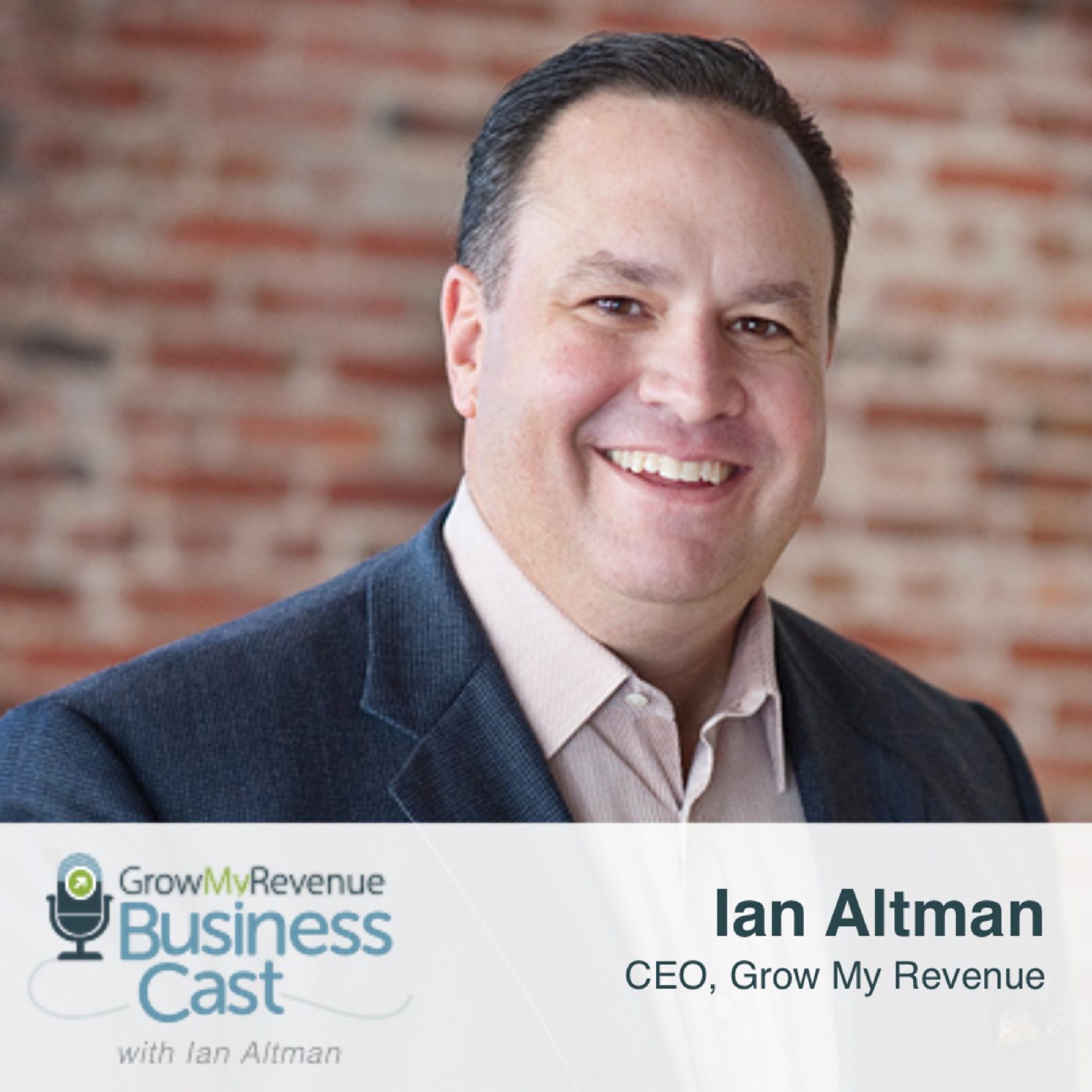
Have you ever noticed how marketing messages often pay no attention to what is on the mind of the customer they are trying to reach? Rather than find out what their audience is concerned with, most marketers prefer to expound on what's so great about their company, and why people should use their product or service. Doing so is one of the ways marketers have ruined communication today.
On this episode, I'll be sharing some real-life examples of bad marketing, and why you must know what your customer is thinking about before you begin the marketing conversation. I'll also explain how to get the answers you need by asking the right questions. Today's edition of Grow My Revenue is entertaining and informative!
Listen to this episode and discover:
· What are brain pickers, and why are they on the rise?
· Why trying to appeal to everyone makes you appeal to no one.
· What is breakage, and what does it have to do with marketing?
· What is one of the things people most misuse in marketing automation?
· What you must do to be on people's minds.
· And so much more…
Episode Overview
I kick off the show by reading an email I recently received, and explaining why it doesn't work as a marketing tool (which will be apparent when you hear it!). I wanted to give you a real-life example because they are so prevalent today; I keep a file specifically for bad marketing and I add to it daily!
I also discuss why honesty really is the best policy when talking with your clients, rather than the "guarantees" so many companies make today. True marketing experts will tell you the truth about what they offer. The example I use on this episode is the promise of a viral video from a company.
A good marketer will be straight with you, and will tell you certain things must happen for a video to have a chance of going viral. They'll tell you that you must tap into the right angst or need in the market, and the video must be executed in a way that is fun and entertaining – then it might go viral. They'll be sure you understand it takes a combination of things for the possibility of a viral video; there are no guarantees.
To avoid falling into the bad marketing trap, we have to remember how we ourselves behave as consumers. When we hear something that sounds too good to be true, we assume that it is. Why would we try to make the same "too good to be true" promises to others in our own marketing pitches? It works in our favor to tell the truth, and to share the results we've gotten for our clients, but also explain that we cannot guarantee that same outcome. Saying so builds trust.
Another key way to build trust is to find out what our people consider valuable: asking the right questions. There are three types of questions to ask: worldview, industry view, and how relevant you are to your customer's business.
Understanding what your customer's world looks like means asking questions, such as: "At your next board meeting, what are the three things you have to update them on? What are the three big initiatives that are going on, and what are you going to tell them? What would you be fired for not doing at your job?
Second, to understand their industry view, ask them to give an example of the worst experience they've had with a vendor in your space, even if it is with you. Ask them what they think of your industry and be willing to hear the answer because they will give you one!
Third, you can find out how relevant you are by asking them to share what would happen if you would go out of business, how would they be impacted? Would they even notice? You can also ask for them to share their perspective on your sweet spot and what you do better than anyone else. And find out what would make them a customer for life by asking them that exact question.
On today's show, you'll hear all of that and more. It's a fun and information-packed show designed to help you grow your revenue and your business right away.
view more
More Episodes
194 | The Decision Maker Myth, Skip Miller
 2019-05-11
2019-05-11
 2019-05-11
2019-05-11
189 | Selling From The Heart | Larry Levine
 2019-04-06
2019-04-06
 2019-04-06
2019-04-06
186 | Think Like Your Customer, Bob London
 2019-03-17
2019-03-17
 2019-03-17
2019-03-17
181 | Sales Differentiation, Lee Salz
 2019-02-10
2019-02-10
 2019-02-10
2019-02-10
012345678910111213141516171819
Create your
podcast in
minutes
- Full-featured podcast site
- Unlimited storage and bandwidth
- Comprehensive podcast stats
- Distribute to Apple Podcasts, Spotify, and more
- Make money with your podcast
It is Free
- Privacy Policy
- Cookie Policy
- Terms of Use
- Consent Preferences
- Copyright © 2015-2024 Podbean.com






